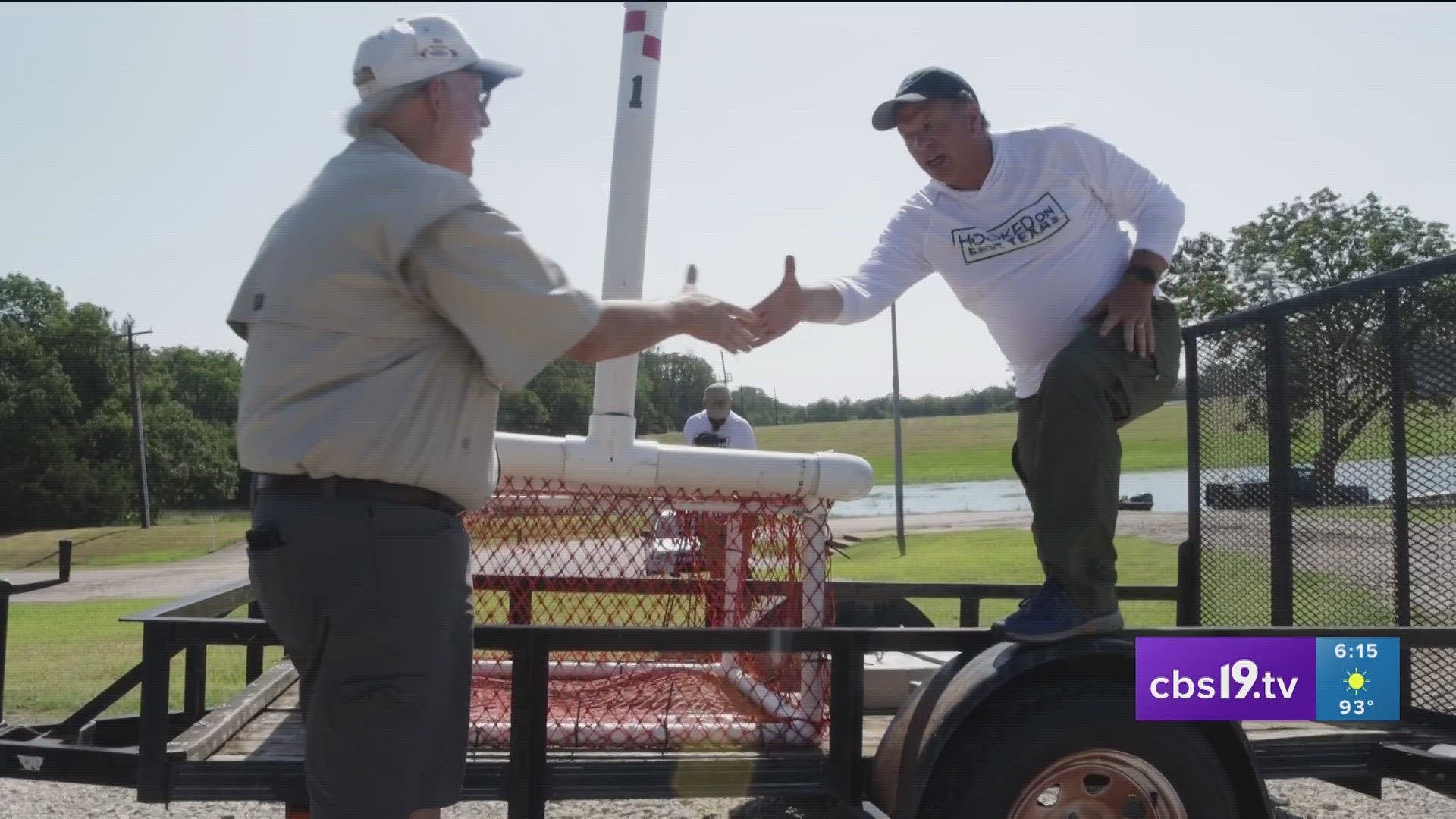TYLER, Texas — In this week’s Hooked On East Texas we highlight the effort rooted in restoring a missing part of the habitat at Lake Fork.
As we motor along the shoreline, Texas Parks and Wildlife biologist Jake Norman sums up our story this way.
"Vegetation is the lifeline of Lake Fork and we’ve (not been) able to get anything going again," Norman said.
Since 2015, droughts and hot summers have taken a huge bite out of Lake Fork’s natural plant habitat.
“That had a significant impact on the shoreline habitat because it’s hard for it to come back and restore itself," Norman said.
Norman is teaming up with the Lake Fork Sportsman Association. The goal is to use 10 floating grass planters to establish native vegetation along the 315 miles of shoreline on Lake Fork.
“If you think about grasses in this lake, as large as it is you need a lot," said past president of the Lake Fork Sportsman's Association, Carolyn West.
West currently manages the Associations’ grasses project which is funded through the Habitat Angler Access program.
“It is easy. It’s a floater," West said. "It doesn’t attach to the soil, so it’s easy to get it out and around the lake".
How do you get it around the lake?
The answer, deploy floating grass planters. High school students from Yantis built cages that will be dropped and anchored in about 10 to 15 feet of water.
“The benefit when its floating out in the middle, when the lake drops five, six, seven hopefully not any more than that, eight feet again," Norman explained. "But if it does that, planters just going to fluctuate with the elevation of the lake at the time so were not going to leave a bunch of founder colonies high and dry on the bank.”
The project has an estimated cost of $12,000 and a portion of the fishing license fees will be funded towards HAAP projects.
While challenges are inevitable, Norman is asking the public to help and report if they see something suspicious.
“I encourage folks if they see these. Ask questions. Please don’t mess with them," Norman said. "Don’t think it’s something illegal. It’s not illegal fish baskets, it’s not anything malicious. It is simply a habitat improvement project".
This time next year, the Sportsman’s Association and TPWD are expected to know if the program is a success.
“If we see an abundance of growth. I think we can say we’ve reached a point where we’re successful with the program," West said.

